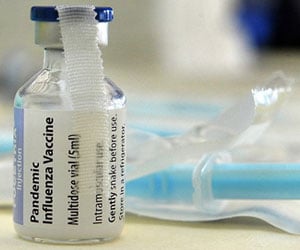A new modified muscle flap technique may be able to tackle pain and promote faster healing among lung surgery patients, researchers have revealed.
With the help of this technique, UAB Chief of Thoracic Surgery Dr Robert J. Cerfolio, instead of crushing the intercostal muscle and nerve that lies between the ribs during rib spreading, teased the muscle and nerve away from the rib and then moved it out of the way before spreading the ribs.This led to fewer traumas to the muscle and intercostal nerve and dramatically reduces post-operative pain.
This simple variation in the previous technique developed at the University of Alabama at Birmingham (UAB) would help patients return to normal activity quicker.
This new technique divided, then moved, the intercostal muscle and the nerve away from the rib spreader so it was not crushed.
In this new modification, the muscle is no longer divided but is allowed to dangle under the rib spreader, further avoiding trauma to the nerve and muscle.
The study involved 160 patients, those who received the modified muscle flap technique reported that pain was reduced both in the hospital and after surgery at weeks three, four, eight and 12.
Advertisement
They also were more likely to return to normal activities within eight to 12 weeks after the surgery.
Advertisement
"Then, I got the idea that maybe we could further reduce the pain by avoiding the intercostal nerve and muscle that lie above the sixth rib during opening and came up with the idea of harvesting the intercostal muscle flap prior to chest retraction.
"As surgeons, we are constantly looking for ways to improve techniques and reduce pain," he added.
The study is published in the June issue of the Annals of Thoracic Surgery.
Source-ANI
RAS/L








